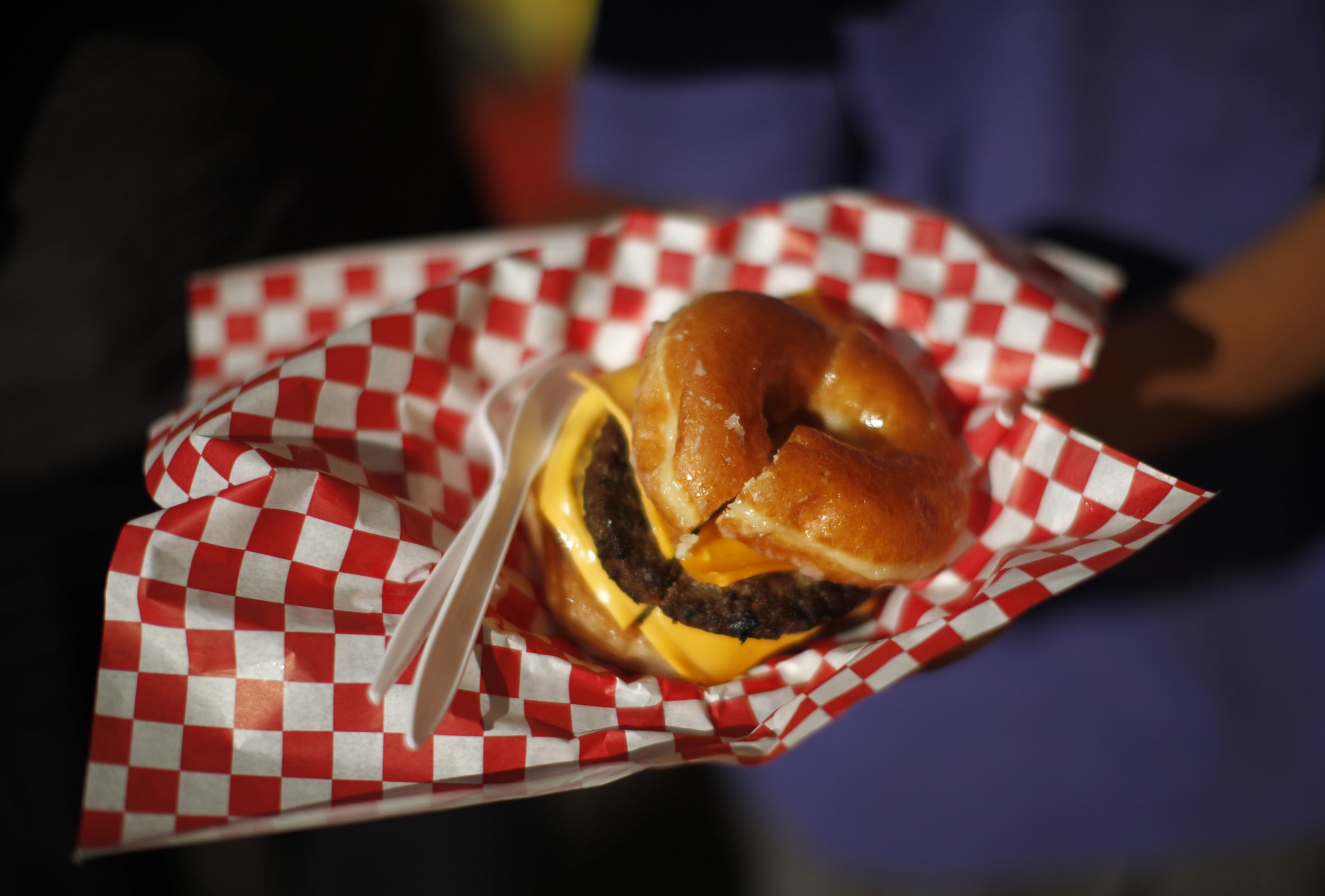
The world is getting sicker and sicker, because of what's on our dinner plates. According to the World Health Organization, global obesity and overweight rates have doubled since 1980. What that means: in 2008, 35 percent of adults over age 20, 1.4 billion people, were overweight; 11 percent were obese. While these conditions mainly used to afflict only the most affluent nations, it's spread to the point where 65 percent of the world's population "live in countries where overweight and obesity kills more people than underweight"—in other words, today, more people die from eating too much, and too poorly, than from a lack of food.
Cultural shifts—much of the world has moved from physically intense agrarian societies to relatively sedentary, urban ones—also contribute to higher obesity and overweight rates, because the average person simply isnt't burning as many calories he or she once did. But junk food has been identified as perhaps the primary culprit in the obesity epidemic. Research has emerged showing that high-calorie, high-fat foods replete with excess sugar and salt are desirable despite their health risks because they can be addictive, rewiring the brain's reward mechanism just like cocaine does.
New research published today in Frontiers in Psychology gives additional insight into junk food's further influence on consumers' diets.
Researchers at the University of New South Wales Australia conducted several studies to see how junk food would impact rats' weight and dietary preferences. Of course, they found the obvious—junk food "makes rats fat." But they also determined that junk food-fed rats experienced a reduced desire for novel foods, which is important as this appetitive tendency, innate in animals, typically encourages rats' to pursue a balanced diet.
"Eating junk food seems to change the response to signals that are associated with food reward," Prof. Margaret Morris, Head of Pharmacology from the UNSW Australia's School of Medical Sciences and a study co-author, tells Newsweek.
How did the researchers come to this conclusion?
For several weeks, the team fed one group of animals a diet of healthy rat food, and they fed another group of rats a diet that included not-so-healthy human foods such as pie, dumplings, cookies and cake. Both groups of rats were also given cherry and grape sugar water to drink. The junk food-fed rats wound up weighing 10 percent more than their healthy food-fed counterparts.
In one of the experiments, the team taught these rats to associate cherry and grape sugar water with different sound cues. The healthy rats responded appropriately to the sound cues—that is, if they had just consumed grape sugar water and then heard another cue for grape sugar water, they wouldn't drink more of it. Junk food-fed rats, on the other hand, would respond to sound cues in an unhealthy manner—if they heard a noise associated with grape sugar water, they would drink said sugar water even if they had just consumed a lot of it. (The same findings hold for cherry sugar water.)
In other words, it appears junk food-fed rats don't seem to realize when they've overindulged in a food (the flavored sugar water); instead, they respond to the sound cues just the same, whereas healthy rats stop responding to the food they just ate.
"We know a lot about food and nutrition and what we should be doing, and yet we're getting fatter and fatter," Morris says. "Our sort of diet appears to override an animal's ability to know it's just eaten something—they're just eating indiscriminately, if you will."
In another experiment, the researchers wanted to see whether the apparent disruption of the reward mechanism persisted after the junk food-fed rats were placed on a healthy diet. Even after a week on healthy rat chow, the formerly junk food-fed rats still acted the same way, treating both solutions indiscriminately, according to Morris.
"It suggests that whatever changes happen in the brain may persist for a while," she says.
The study, while pertaining to rats, has a lot of troubling implications for humans. Rat behavior often gives insight into human behavior—which means we should think deeply about junk food's psychological and public health impacts.
Uncommon Knowledge
Newsweek is committed to challenging conventional wisdom and finding connections in the search for common ground.
Newsweek is committed to challenging conventional wisdom and finding connections in the search for common ground.
About the writer
Before joining Newsweek, Victoria Bekiempis worked at DNAinfo.com New York and the Village Voice. She also completed internships at news ... Read more
To read how Newsweek uses AI as a newsroom tool, Click here.








